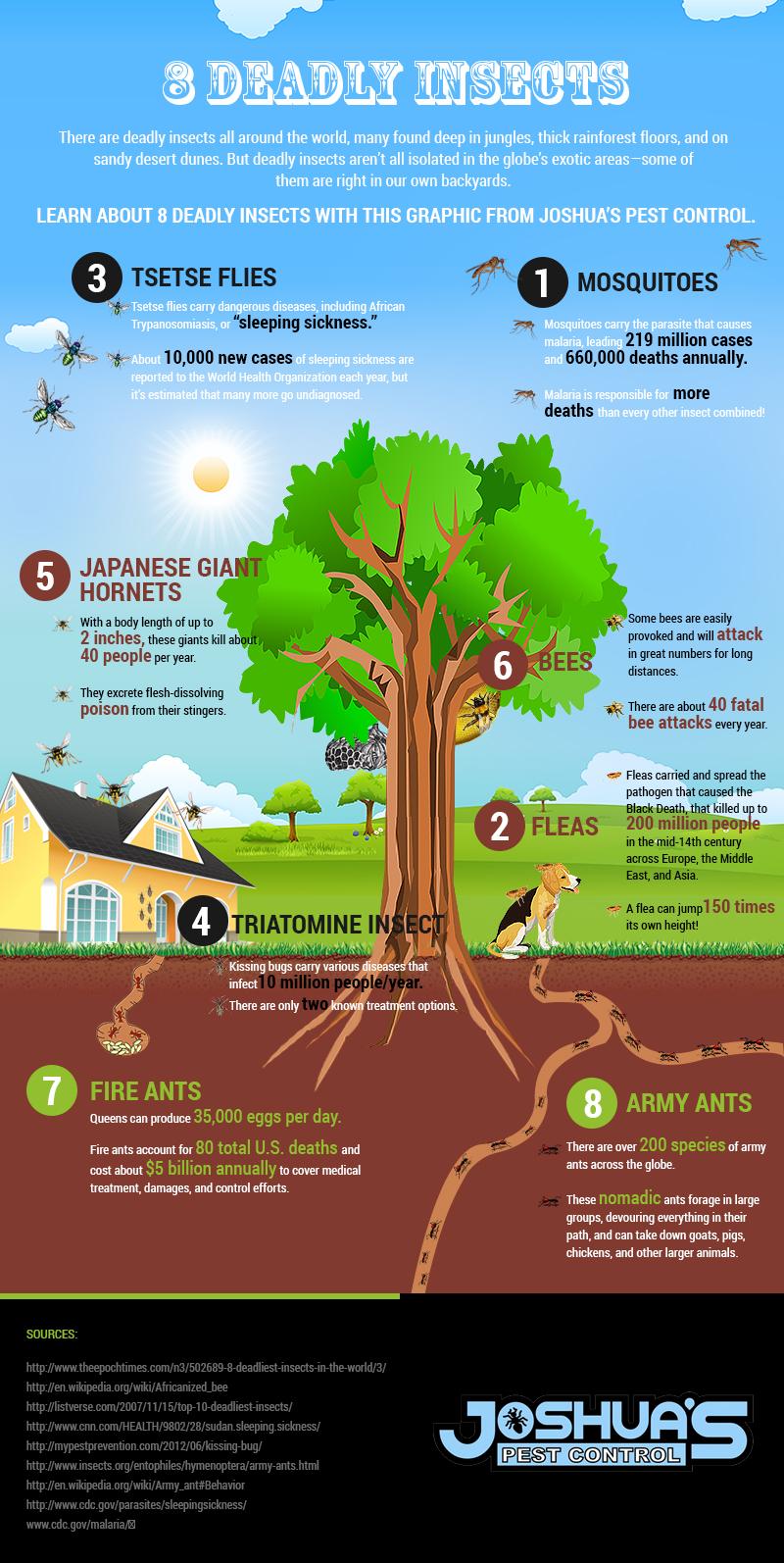The Role Of Insect Control In Food Safety And Health
The Role Of Insect Control In Food Safety And Health
Blog Article
Material Author-Willadsen Bork
Are you aware of the hidden risks that bugs present to the safety and hygiene of your food? From rats to bugs, these unwanted site visitors can contaminate your active ingredients, surfaces, and storage areas.
This short article checks out the critical role of parasite control in maintaining the highest possible criteria of food security and health. Discover efficient techniques and prevention steps that will certainly help you safeguard your service, clients, and track record.
Do not allow parasites compromise the top quality of your food.
The Influence of Pests on Food Security and Health
In your cooking area, bugs can have a significant impact on food safety and health. These undesirable guests, such as rodents, bugs, and roaches, can pollute your food, surfaces, and utensils with hazardous bacteria, infections, and bloodsuckers. They can easily access your cupboard, cabinets, and even your fridge, leaving behind droppings, urine, and hair.
Not only can they ruin your food by chewing via packaging, yet they can likewise spread out conditions like Salmonella, E.coli, and Listeria. Visualize preparing a dish for your household, uninformed that the active ingredients you're making use of are already infected.
Pet-safe rodent repellents to take instant action to avoid and regulate pests in your kitchen area. Regular cleaning, correct food storage space, and professional parasite control steps are important to ensure food safety and security and keep a hygienic environment in your cooking area.
Reliable Pest Control Strategies for the Food Industry
Carrying out efficient pest control techniques is crucial for maintaining food safety and hygiene in the food market. By carrying out Rodent activity signs , you can prevent pests from infecting the food and ensure that your items are secure for intake.
One effective approach is to routinely inspect and check your center for indicators of pest activity. This includes monitoring for droppings, nests, or any kind of damage triggered by insects.
It's also important to seal all entrance points to avoid parasites from entering the center. Regular cleaning and sanitation are important, as bugs are drawn in to food deposit and spills.
Furthermore, correct waste monitoring is essential to avoid the accumulation of food waste that can attract pests.
Maintaining Hygiene Specifications With Bug Prevention Measures
To maintain hygiene requirements, you have to on a regular basis carry out pest prevention measures. By taking aggressive actions to avoid parasites from entering your food facility, you can guarantee the safety and tidiness of your properties. Below are some efficient pest prevention actions to consider:
- Seal all cracks and holes: Pests can enter with even the tiniest openings. Regularly examine and seal any type of gaps in doors, home windows, walls, and floors to maintain pests out.
- Correct waste administration: Get rid of food waste without delay and safely in secured containers. This will certainly reduce the destination of bugs and protect against invasions.
- Regular cleansing and disinfecting: Preserving cleanliness in your establishment is important. On a regular basis clean and disinfect all areas, paying special attention to areas where insects might conceal or reproduce.
- Implement a monitoring system: Frequently evaluate your properties for indications of pest task. Set up bug surveillance gadgets, such as traps or sensing units, to recognize and deal with any type of prospective issues early.
Final thought
So remember, when it concerns food safety and health, pest control plays an essential role.
By executing effective parasite control strategies and preventive measures, we can make certain the highest criteria of sanitation and safety in the food industry.
Do not allow bugs endanger the high quality of our food; allow's stand together and safeguard our health and health.
